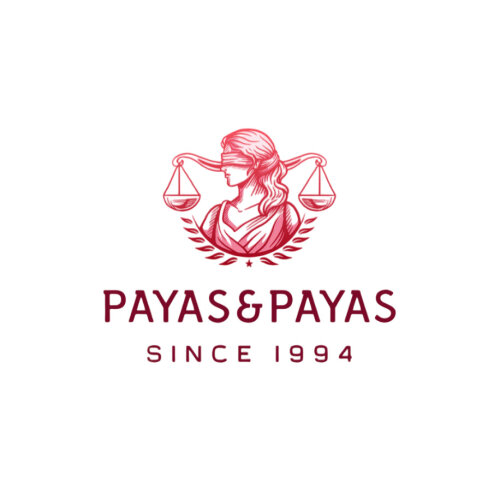Best Employment & Labor Lawyers in Turkey
Share your needs with us, get contacted by law firms.
Free. Takes 2 min.
Or refine your search by selecting a city:
List of the best lawyers in Turkey
Turkey Employment & Labor Legal Articles
Browse our 4 legal articles about Employment & Labor in Turkey written by expert lawyers.
- Turkey: Fired Without Warning? Wrongful Dismissal Guide
- Most employment relationships in Turkey are governed by Labour Law No. 4857 and the Turkish Code of Obligations, with strong protection on termination, overtime, and severance pay. Standard weekly working time is 45 hours and overtime usually attracts a 50% premium; unpaid overtime and "hidden" overtime are among the most... Read more →
- Is a Company Liable for Employee Crimes in Turkey?
- Table of ContentsIntroduction: The Dual-Risk Reality for Companies in TürkiyeThe Guiding Principle: Personal Criminality and Corporate ConsequencesParallel Sanctions: Penalties for Individuals and the CompanyPenalties for Individuals (Executives, Directors, and Employees)"Security Measures" Against the CompanyKey Risk Areas Where Corporate Liability Often ArisesBribery and CorruptionFraud and Abuse of TrustAnti-Money Laundering (AML)The Strategic... Read more →
- Understanding Turkish Labor Law: A Guide for Employers
- For businesses operating in Turkey, understanding the country's labor laws is essential for maintaining compliance and fostering positive workplace relations. Whether you're a foreign company establishing operations in Turkey or a local business seeking clarity on employment regulations, this comprehensive guide will help you navigate Turkish labor law with confidence.Turkey's... Read more →
About Employment & Labor Law in Turkey
Employment and labor law in Turkey is governed by a combination of statutory regulations, case law, and collective agreements. The main legislation includes the Labor Law No. 4857, the Law on Trade Unions and Collective Bargaining Agreements, Social Insurance and Universal Health Insurance Law, and the Code of Obligations. These laws define the rights and responsibilities of both employers and employees, focusing on aspects such as employment contracts, working conditions, health and safety, wages, working hours, termination procedures, and collective bargaining.
Why You May Need a Lawyer
There are various situations where you might require legal assistance in the field of employment and labor in Turkey. Common issues include disputes over wrongful termination, workplace discrimination or harassment, negotiation of employment contracts or severance agreements, and issues related to unpaid wages or overtime. Legal counsel can also be invaluable during collective bargaining processes or when dealing with occupational safety issues and compliance with labor laws.
Local Laws Overview
Turkey's employment and labor laws cover several important aspects:
- Employment Contracts: These can be indefinite, definite, or temporary, and must follow regulations outlined in Turkish labor law.
- Working Hours: The maximum working hours are set at 45 hours per week, with overtime permissible under certain conditions.
- Minimum Wage: The minimum wage is determined by the Turkish government and is updated regularly.
- Termination: Employers must follow specific procedures for termination, including the provision of severance pay where applicable.
- Collective Bargaining: Workers have the right to form unions and engage in collective bargaining.
- Social Security: Employers are required to enroll employees in the social security system for healthcare and pension benefits.
- Non-Discrimination: Laws are in place to prevent discrimination based on gender, ethnicity, religion, disability, and more.
Frequently Asked Questions
What rights do employees have when they are terminated?
Employees have the right to receive their outstanding wages, severance pay (if they have worked for more than one year), notice pay, and unused vacation pay. The exact entitlements depend on the employment contract and reasons for termination.
How is overtime compensated?
Overtime work is generally paid at a rate of 1.5 times the regular hourly wage. In some cases, compensatory time off may be offered instead.
What is the legal procedure if an employee feels wrongfully terminated?
An employee can file a reinstatement lawsuit in labor court within one month of termination, provided the company employs at least 30 employees and the employee has worked for at least six months.
Are there specific protections for pregnant employees?
Yes, pregnant employees are entitled to a total of 16 weeks of maternity leave, which can be extended under certain conditions, and cannot be dismissed due to their pregnancy.
Can a foreigner work in Turkey? What are the requirements?
Foreigners are allowed to work in Turkey provided they obtain a work permit through their employer. Special categories of work permits are available for certain professions and conditions.
How does collective bargaining work in Turkey?
Workers have the right to form unions and engage in collective bargaining with employers to negotiate terms of work, wages, and other employment conditions.
What are the primary responsibilities of employers towards occupational safety?
Employers must provide a safe working environment, conduct risk assessments, and provide necessary training and equipment to ensure occupational health and safety.
What are the rules regarding annual leave?
Employees who have worked for at least one year are entitled to a minimum of 14 days of paid annual leave, which increases with the length of service.
How does the Turkish labor court system work?
Labor courts are specialized courts that deal with disputes between employers and employees. They follow specific procedures designed to ensure cases are resolved efficiently.
What resources are available for employees facing workplace discrimination?
Employees facing discrimination can file a complaint with the labor court or seek assistance from trade unions or the Human Rights and Equality Institution of Turkey.
Additional Resources
Several resources and organizations can be helpful for those seeking assistance with employment and labor issues in Turkey:
- The Turkish Ministry of Family, Labor and Social Services
- The Human Rights and Equality Institution of Turkey
- Local Trade Unions
- Legal Clinics and NGOs specializing in labor rights
Next Steps
If you need legal assistance with employment and labor matters, consider the following steps:
- Identify Your Issue: Clearly define the nature of your problem or dispute.
- Gather Documentation: Collect all relevant documents, such as your employment contract, correspondence with your employer, and records of the issue at hand.
- Consult with a Specialist: Engage a lawyer who specializes in employment law to discuss your case and explore your options.
- Contact Relevant Authorities: If necessary, file a complaint with the appropriate governmental body or labor court.
- Pursue Collective Measures: Consider reaching out to a trade union for collective support if applicable.
Working with a legal expert can significantly improve your understanding of rights and obligations, ensuring that your case is handled appropriately.
Lawzana helps you find the best lawyers and law firms in Turkey through a curated and pre-screened list of qualified legal professionals. Our platform offers rankings and detailed profiles of attorneys and law firms, allowing you to compare based on practice areas, including Employment & Labor, experience, and client feedback.
Each profile includes a description of the firm's areas of practice, client reviews, team members and partners, year of establishment, spoken languages, office locations, contact information, social media presence, and any published articles or resources. Most firms on our platform speak English and are experienced in both local and international legal matters.
Get a quote from top-rated law firms in Turkey — quickly, securely, and without unnecessary hassle.
Disclaimer:
The information provided on this page is for general informational purposes only and does not constitute legal advice. While we strive to ensure the accuracy and relevance of the content, legal information may change over time, and interpretations of the law can vary. You should always consult with a qualified legal professional for advice specific to your situation.
We disclaim all liability for actions taken or not taken based on the content of this page. If you believe any information is incorrect or outdated, please contact us, and we will review and update it where appropriate.
Browse employment & labor law firms by service in Turkey
Turkey Attorneys in related practice areas.
Browse employment & labor law firms by city in Turkey
Refine your search by selecting a city.

















